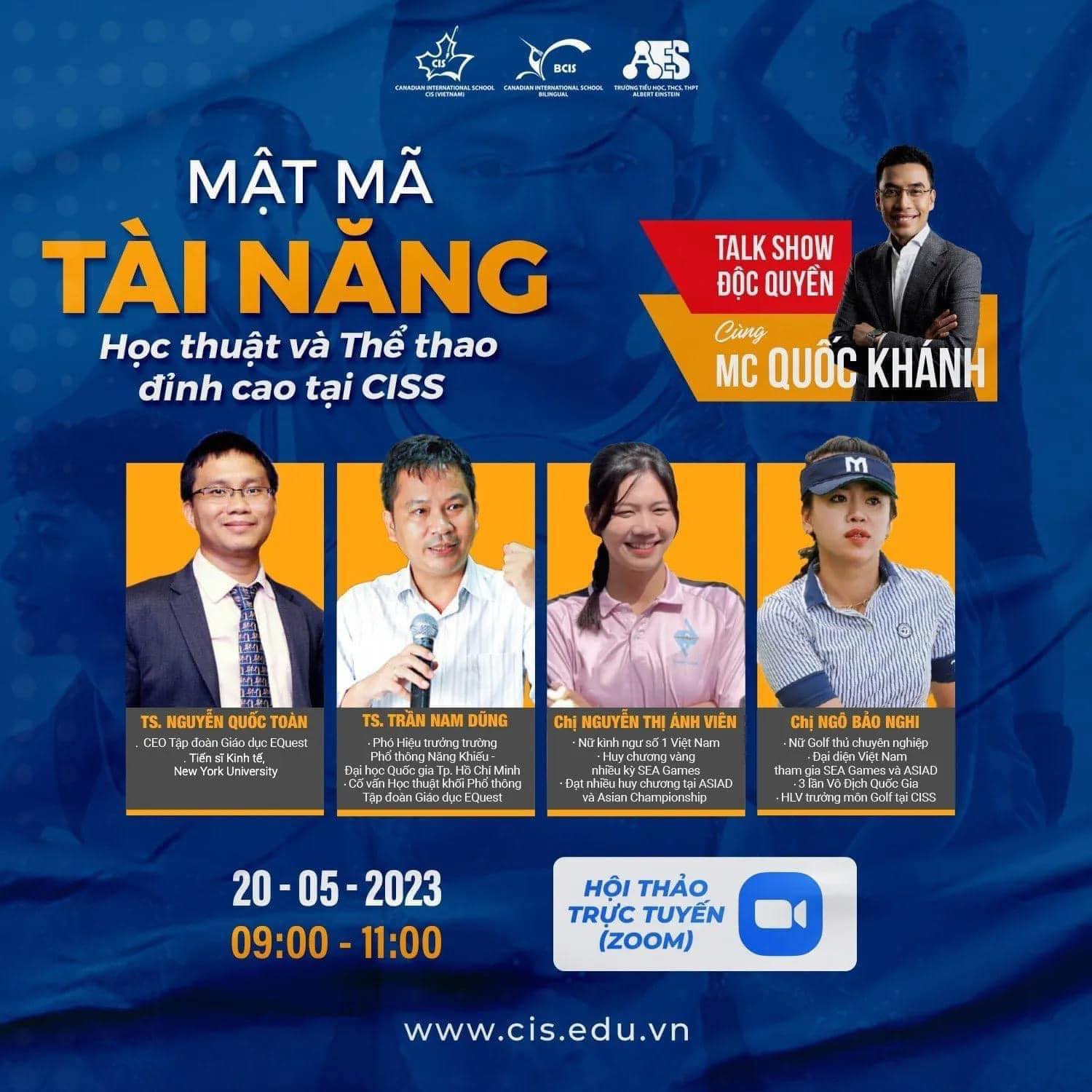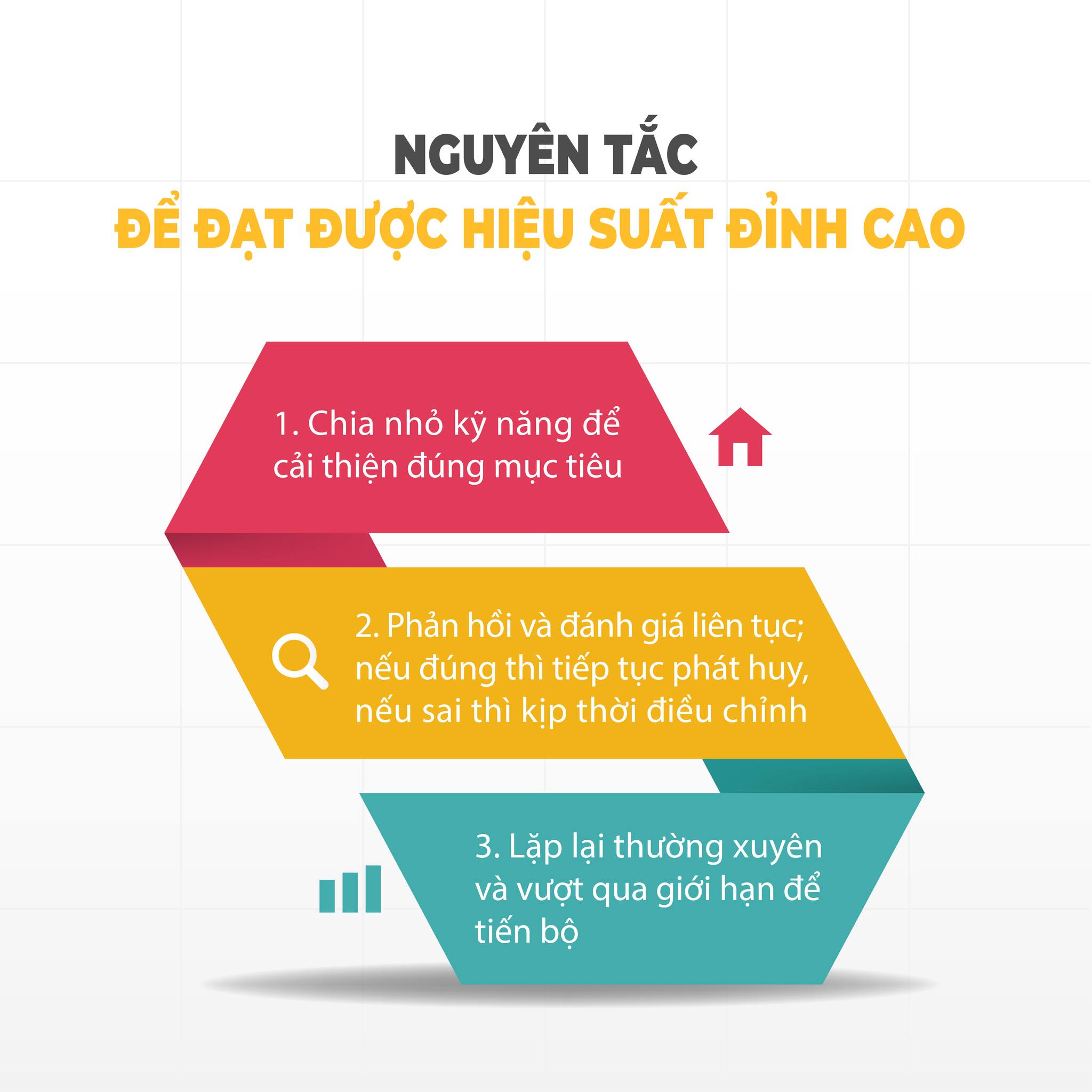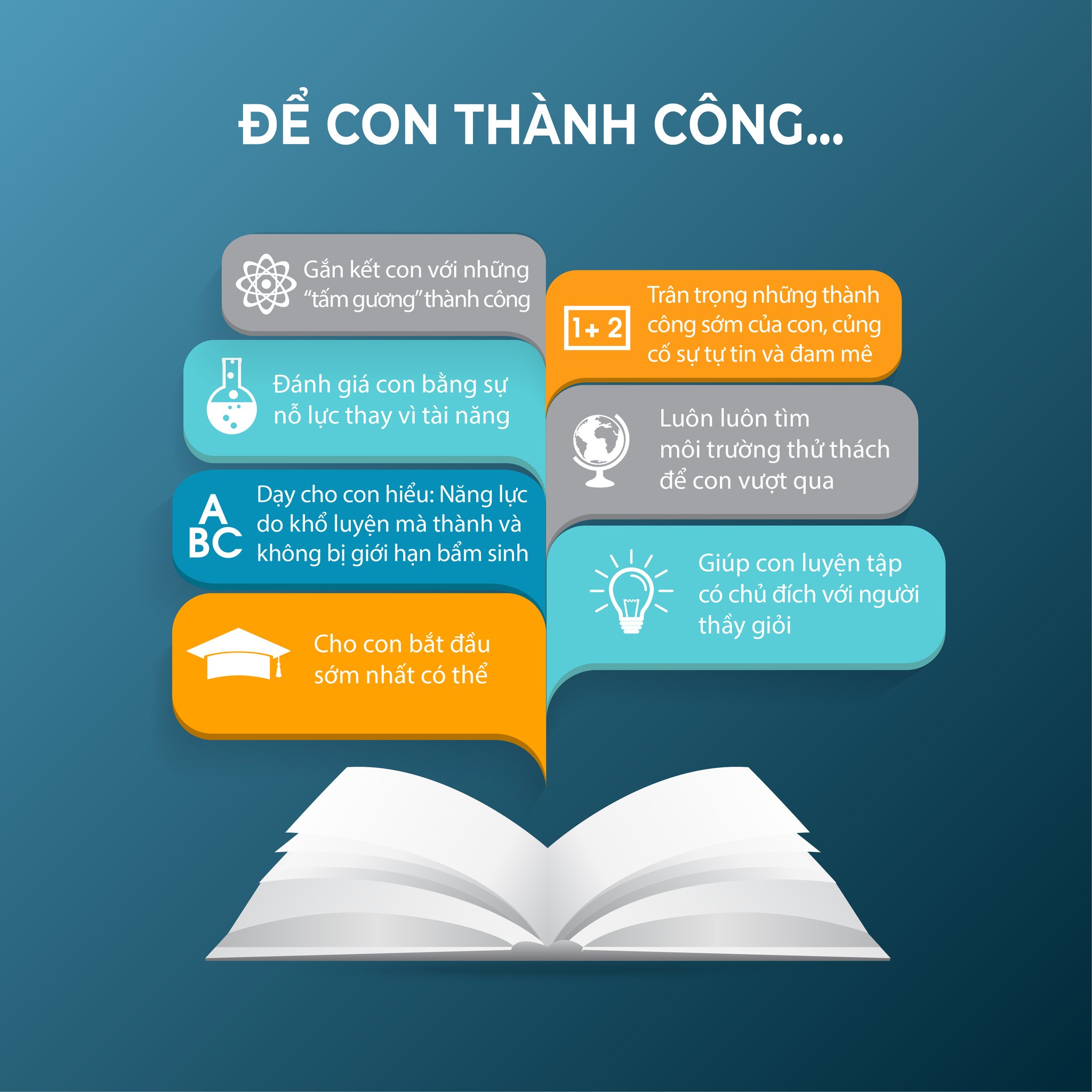02/06/2023
The sentence "Genius is 1% talent and 99% hard work": Does practice lead to success?
The above is a classic question that many people ask when discussing the importance of diligent practice and innate talent. What factors differentiate a successful person from an average individual?
This thought-provoking question was addressed and deeply explored in the talkshow "The Enigma of Talent - The Pinnacle of Sports and Academics" held at the Canada International School (CIS), a member of the EQuest Corporation, this past Saturday (May 20). The talkshow served as an intimate conversation between outstanding athletes and leading educators in Vietnam, providing parents and teachers with a clear understanding of the importance of nurturing skills in children.

Specifically, at the beginning of the talkshow, Dr. Nguyen Quoc Toan, the CEO of EQuest Education Group, a businessman dedicated to transforming the education system in Vietnam, spoke about "The Enigma of Talent" and revealed the secret of success for renowned individuals in academics, sports, and the arts.
He explained that talent is formed by a fatty substance called Myelin, and "hard work" can thicken the layer of Myelin, making us smarter. Understanding this principle, we can believe that genius is not necessarily a divine gift bestowed upon a few individuals. A normal person with average abilities, if they know how to train using intentional practice methods, can elevate certain skills to an astonishing level, and even become outstanding.
"Hard work" requires intense focus, active participation, and clear goals to improve specific skills. In his sharing, Dr. Toan presented some principles to achieve peak performance, such as:
1. Break down skills to improve the right target (For example, in golf practice, don't aim to hit the ball into the hole right away, but focus on perfecting the grip first).
2. Continuously provide feedback and evaluation; if it's correct, continue to enhance it, if it's wrong, make timely adjustments.
3. Regular repetition and pushing beyond limits for progress (spending 30 minutes each day is better than dedicating 5 hours on a single day of the week).

Another point emphasized by Mr. Toan is that successful purposeful practice cannot be without the presence of a mentor. Choosing a good mentor can make a significant difference as they have the ability to identify the strengths and weaknesses of their students and help them maximize their potential and overcome challenges.
However, these two factors are just the necessary elements. In predicting the success of an individual, "perseverance" is indispensable, which the Vietnamese often refer to as "determination" and the world calls the "10,000-hour rule". Dr. Toan also presented core principles for "raising a successful child", including:
Start early as soon as possible.
Help the child engage in purposeful practice with a good mentor.
Teach the child to understand that abilities are developed through hard work and are not limited by innate talent.
Evaluate the child based on effort rather than talent.
Always seek challenging environments for the child to overcome.
Appreciate the child's early successes to strengthen their confidence and passion.
Connect the child with successful role models who have overcome challenges and persevered, thus building resilience.

Continuing the program is a sharing session of practical experiences in academic and high-level sports by famous guests: Dr. Tran Nam Dung - Deputy Principal of the Gifted High School, National University in Ho Chi Minh City; Ms. Nguyen Thi Anh Vien - Swimming Consultant at CIS and EQuest, and Ms. Ngo Bao Nghi - Head Coach of the Golf Program at CIS and EQuest.
The stories shared by the guests aim to reinforce the aforementioned theories that talent can be actively nurtured and sustained.
For example, Ms. Bao Nghi shared her own journey of accompanying golf for 18 years since she was 12 years old. Becoming a professional female golfer with numerous impressive achievements, as she is today, is a very long journey, even longer than the 10,000-hour rule. Starting from the early days of getting familiar with the sport and beginning with school-level, provincial, national, and international competitions...
"Vietnamese people often think that if they practice diligently, they will receive proportional rewards. However, Westerners have a different mindset. Instead of dedicating 8 hours a day to practice, they spend a significant amount of time understanding optimization principles, how to maximize skills in minimal time," said Ms. Nghi.
In his role as a mentor, Dr. Tran Nam Dung shared a principle he applies to all his students, which is "each step must be firm." In other words, before engaging in practical exercises, the theory must be solid. During practice, students should not simply follow a "teach what is being taught" approach, but rather understand the methodology and know how to expand the problem-solving approach to new exam questions.
"I prefer calm and composed students, not in a rush. Quality is more important than quantity. Especially in learning Mathematics, it's about learning the method once but applying it in ten different ways. Only then can progress be made. To solve problems quickly, you must go through days of solving slowly. When facing difficult problems, students should push themselves a bit, take time to research and understand, regardless of how long it takes. At that point, the outcome will be very rewarding," shared Dr. Tran Nam Dung.
Regarding the perspective of female athlete Anh Vien, she added that in Vietnam, young children are often directed by their parents and are not given the freedom to pursue their passions. This is the biggest limitation compared to children from foreign countries.
In conclusion, all the guests share the common view that instead of forcing children to fit into a mold and be more talented than others, parents should be guides, understanding, and attentive, helping children surpass their "comfort zone" and discover their true talents. Additionally, parents and teachers should not hesitate to give praise and recognition when children perform well, and provide constructive feedback and encouragement when they are still weak. The power of a critical comment can be very daunting and can "extinguish" both confidence and passionate enthusiasm in young children.
Above is a detailed review. We invite teachers and parents to review the talk show and reflect on the fact that our children deserve to have even more talents.
Hotline
Hotline